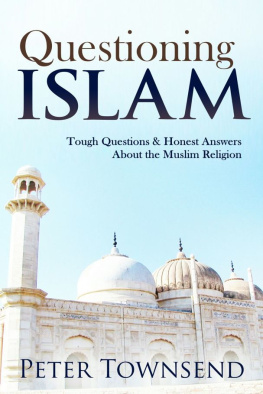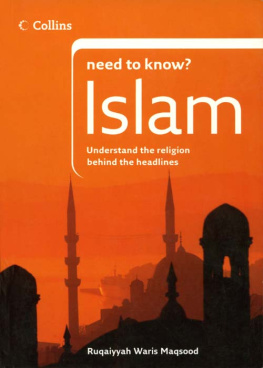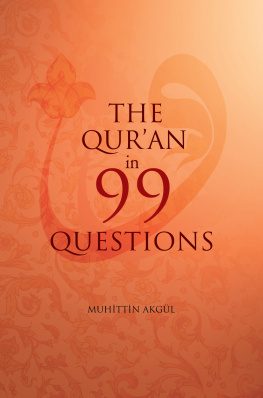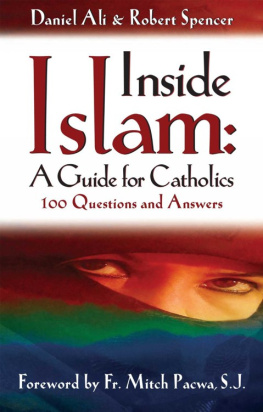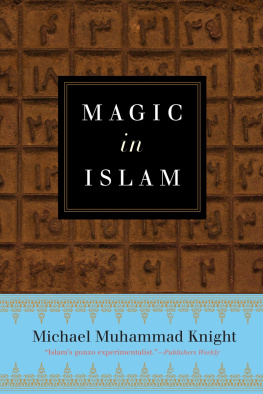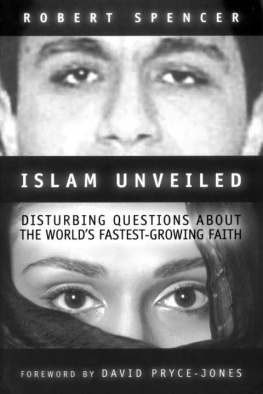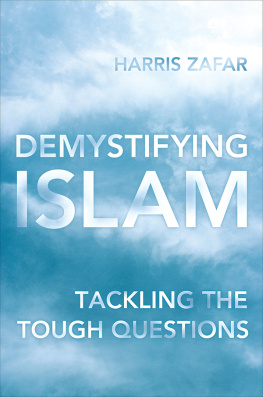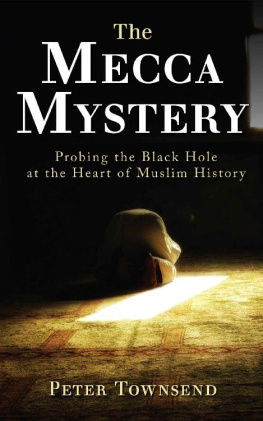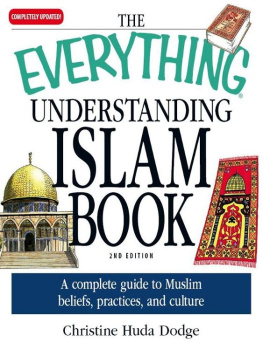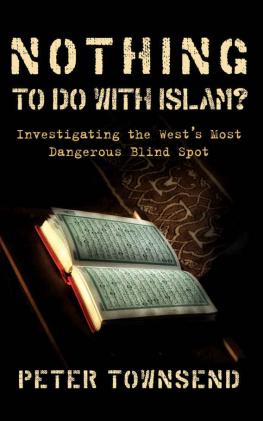Copyright 2014 by Peter Townsend
All rights reserved. This book or any portion thereof may not be reproduced or used in any manner whatsoever without the express written permission of the author except for the use of brief quotations in a book review.
Contents
1. Why This Book?
As the title indicates, the purpose of this book is to ask some probing and serious questions about the religion known as Islam. The consistent focus will be on the truth-claims of this religion that holds the allegiance of more than a billion human beings with a discussion of its history, its texts and its impact on the world. Why do this? The following reasons motivated me to write this book:
Islam claims an increasingly prominent role on the world stage and in the public life of many traditionally non-Muslim societies. In spite of this fact, most non-Muslims are woefully ignorant of even the most basic teachings of Islam. It is vaguely assumed that Islam is a benign and respectable world faith and that to probe too deeply into the core beliefs of others would somehow be disrespectful and unwarranted. I beg to differ. Beliefs cannot be granted untouchable status simply because they are sincerely held by many. It is indeed possible to be sincerely wrong ! Offering a critical examination of Islam is therefore not an act of disrespect, intolerance or even hate. It is simply an opportunity to place truth-claims on the table for discussion. The goal is to allow readers who may have only looked at Islam from afar to come to an informed evaluation of its merits or otherwise.
Islam is a missionary religion in the sense that it actively seeks converts to what Muslims regard as the one true faith. This is known as da'wa (Call to Islam). Because of the emphasis on dawa , non-Muslims are steadily confronted with material designed to get them to consider becoming Muslims. These books, websites, movies and mobile apps obviously seek to present Islam in the most positive light possible. Questioning Islam should be seen as a bit of a counterweight, an opportunity to consider 'the other side of the story'. It can therefore be used by people considering conversion to Islam to make sure that they make a balanced decision. The book provides material that will help them to ask and find answers to difficult and challenging questions about Islam.
Muslims should be encouraged to ask hard questions about their faith. The purpose behind Questioning Islam is not to denigrate Muslims or to belittle their beliefs but to encourage them to honestly examine their own deepest convictions. To tweak the famous dictum by Socrates a bit: The unexamined faith is not worth believing . If you are a Muslim, you can expect me to put the case against Islam before you as honestly, accurately and respectfully as possible. You are welcome to form your own conclusions, but please carefully weigh what I say without simply rejecting it because it contradicts what you have always been told.
I want to sincerely thank you for taking the time to read Questioning Islam . If you would like to keep up-to-date with my work you can follow me on Twitter (@petertownsend7 ) or Facebook ( www.facebook.com/questioningislam ). You are also more than welcome to sign up for the Questioning Islam Newsletter. You can do so at: http://bit.ly/qinewsletter
It would, lastly, be sincerely appreciated if you could share your impressions of this work by adding a review on the Amazon website. You can do so by going to http://www.qi-book.com . Once you get to the Amazon Questioning Islam page please click on the stars under 'Customer Reviews' and then on the 'Create your own review' button.
Peter Townsend
Sydney, July 2014
2. Introduction
Before we consider the key aspects of Islam that will be discussed in Questioning Islam , it might be good to say a few words about the approach that will be followed.
It will quickly become apparent as you read the book that I rely very heavily on primary Islamic texts in making my arguments. You will also note that quotes from non-Muslim sources are almost totally absent. The reason for this is that I do not want to be accused of basing my arguments on secondhand opinions of Islam. Instead, I am committed to letting the primary documents of the Islamic faith speak for themselves.
By primary sources, I am referring to the foundational texts of the religion of Islam and not secondary commentaries on them. The arguments in this book are therefore based on the Quran, sound hadiths (traditions) from both Sunni and Shia sources (the nature of the hadiths will be explained in more detail later on) and the earliest biography of Muhammad namely that of Ibn Ishaq.
As far as the Quran is concerned, I will generally quote from the translation by Abdullah Yusuf Ali, simply because it is the one most widely used by English-speaking Muslims. When necessary, I will also refer directly to the Arabic text. A variety of English translations of the Quran (along with the original Arabic, of course) are available at www.quran.com , and readers are invited to confirm my accurate use and discussion of the Quranic text by visiting this site.
When individual hadiths are referred to, the full tradition will be included in the notes so that readers can confirm that I quoted them accurately. It is probably more correct to render the plural of hadith (tradition) as ahadith (traditions), but the fact that this is a plural form will not be readily apparent to most English speaking readers. I will, therefore, consistently use hadiths as the plural form throughout the book.
I am committed to keep Questioning Islam as readable as possible. I, therefore, chose not to clutter the body of this book with detailed in-text references. You will, however, be able to find detailed references in the Notes section at the end of the book. This will allow you to look up and verify my accurate use of the sources that I utilize throughout this work.
It may also, at this point, be good to clarify my intentions with this book. The best way to do so is by looking at some of the things that Questioning Islam is not:
Questioning Islam is not an expression of hate or disrespect towards the followers of Islam . It is very unfortunate that the Qur'an contains many expressions that seem to indicate that an in good faith rejection of Islam is impossible and that those who reject Islam are either ignorant or know its truth and reject it for their own spiteful reasons. Because of this ingrained belief, many Muslims immediately view a questioning of their faith as an aggressive personal attack by someone with a hidden agenda. Someone who actually knows in his heart that Islam is true! It is hard to challenge this kind of deeply rooted notion, but allow me to simply state that this book is not an expression of hatred, intolerance or any of the other slurs with which criticism of Islam is often tarred. You will find nothing in these pages that can be described as hatred. You will, instead, encounter a dispassionate, factual discussion of Islamic faith and practice.
Questioning Islam is not an attempt to aggressively promote another faith or ideology. This book is not about Atheism, Judaism, Christianity, Hinduism, Buddhism, Agnosticism or any other faith or ideology that you might care to mention here. It is about Islam. There are plenty of other resources available that can be used by readers to research the truth-claims of other religions or ideologies, but this is not it. The focus will be on Islam and nothing else.
Questioning Islam is not a general introduction to Islam. The purpose of this book is to ask critical questions of Islam and not to provide a general introduction to the study of Islam. There are many introductory texts on Islam that the reader can consult. In this work, you will indeed find a short and very basic introduction to Islam, but this will certainly not be the main focus of the book. This introductory material was included to support the main purpose of this book by providing a wider context to some of the questions that I will be asking.
Next page
